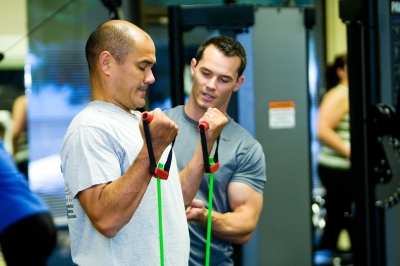Podcast: Play in new window | Download

Good morning and welcome to Episode 77 of the Train Your Brain Podcast with Dr. Michael Trayford. Every Monday we produce a 30-minute episode. Tuesday through Sunday we produce episodes with five-minute tips. Every episode of the Train Your Brain Podcast features a tip, so you can receive pointers 365 days a year that will help enhance the performance of your brain!
This morning Dr. Trayford shares tip number 77 which is to actively learn to play a new instrument. Learning to play an instrument will develop your brain in wonderful ways. Plus, it is so rewarding! Listen in to hear all of the ways your brain health will benefit from studying music.
Jason: I play piano and a little bit of guitar.
You’re going to be giving Prince a run for his money. I admire anyone who knows how to play an instrument. I didn’t grow up in a musical household. My exposure to music came from turning on a radio and enjoying it that way.
I had a recorder in third grade and took up trombone for a minute in sixth grade. My daughter was playing guitar for a little bit and I used to play it with her but she fell out of it.
Music, particularly in children, is incredibly important for enhancing brain development. It’s just you do a Google search on music and the brain there will be a plethora of links extolling it’s many virtues. There was an article in Time Magazine a while ago, about actively learning an instrument can improve a child’s academic achievement.
The key is actively engaging in the instrument, because that’s what has been shown to improve neurophysiological function beyond usual enhancement. When we look at our ability to excel at mathematics and our ability to develop motor skills and manual dexterity. People who play music are better at these things than people who don’t.
You’re learning to interact with the instrument, read music, which is very mathematically in nature. These things can only help and to serve developing a much more advanced human brain. There are all kinds of anthropological studies that show how music taps into various culture and is the common thread amongst all cultures.
Music is being studied by a wide variety of fields, including mathematicians, physicist, biologists, and neuroscientist.
There was a commentary that was done looking at the 18 benefits of playing a musical instrument for adults. Children gain even more benefits through right-brain, than left-brain stimulation. In adults there are improvements in organization skills, memory capacity.
This is of particular interest to me, because we deal with a lot of seniors and elderly patients that are looking to improve memory and brain function. It’s not to late to pick up an instrument if you want to try it out.
Also boosting of interpersonal skills and team building and working with other people, playing music.
Have you ever played music with other people Jason?
Jason: Yes I played in a band for a long time. Not so much recently, but I really enjoyed playing in the band. There’s really nothing like it.
That’s great. As a quick aside: we had a professional drummer that came through our brain training program. After he came through he signed a contract with a major country music band because his drumming skills had so dramatically improved. He would show us videos of him pre and post… As a layperson I couldn’t see the difference, simply because I’m not well versed in music.
His ability to improve his mathematical abilities, his focus and attention as well as his improved ability to use his left hand, he was able to sign on this amazing contract and follow his dream.
The benefits of music also extend to perseverance. Coordination and reading and comprehension skills and responsibility like taking care of your instruments and stress relief. Self-expression… There are a lot of folks that struggle with their ability to communicate through words.
Achievement: Once you learn that new song you can take pride in what you’ve accomplished. Once I learned the first few chords of Wish You Were Here, by Pink Floyd, I was very happy.
Also things like discipline and performance anxiety.
Some wood-wind and brass instruments will help improve your breathing and oxygen levels.
If you have any concerns regarding the information and applications discussed in this podcast, please consult your physician and a doctor who is experienced in functional neurology. Michael Trayford DC, DACNB is available for consultation by calling (828) 708-5274. Thanks for listening. Continue reading →


